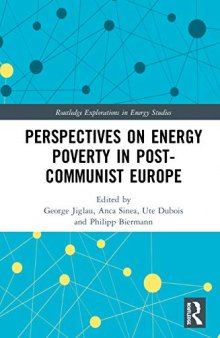 جزییات کتاب
جزییات کتاب
This book explores the issue of energy poverty in post-communist Europe and shows how it is viewed and addressed through public policies. Energy poverty is severely affecting many parts of the European Union, but up until now only a few comparative analyses have been developed to understand the phenomenon and its diversity throughout the region. Filling this gap, this volume focuses specifically on the Eastern European region, drawing on contributions that cover a wide range of countries including Germany, Hungary, Poland, and Romania. This region has undergone significant transitions over the past three decades, but, as the contributions demonstrate, it still faces major challenges to providing clean and affordable energy to its citizens and renovating existing housing stock. The chapters explore the extent of energy poverty in each country and examine the drivers, while casting light on how policy-makers tackle the issue through a critical examination of the instruments implemented to help energy poor people. This book will be of great interest to researchers in the fields of energy policy and comparative politics, to policy-makers in post-communist countries and EU institutions, and also to other relevant actors, such as companies and NGOs who focus on issues of energy poverty.



 دانلود کتاب
دانلود کتاب

 جزییات کتاب
جزییات کتاب

 این کتاب رو مطالعه کردید؟ نظر شما چیست؟
این کتاب رو مطالعه کردید؟ نظر شما چیست؟
